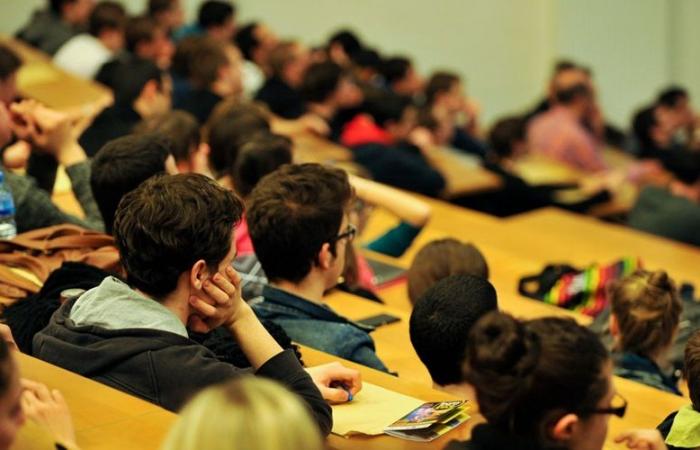This is evidenced by the disturbing level of the unemployment rate of graduates, who, although slightly decreased by 0.9 points, going from 20.3% to 19.4% between the first quarters of 2024 and 2025, remains high. Likewise for scientific research which is still struggling to take on its real flight due to the persistence of many challenges linked to the financing and academic culture not very conducive to innovation and the valuation of the results, in the words of Dr. Radouane Mrabet, former president of Sidi Mohamed Ben Abdellah University of Fez and Mohammed V Souissi University.
Such a reality does not go unnoticed for the deputies, who launched the call for a “national mobilization” in order to open the way to an in -depth reform of the public university and to align it with the aspirations of the new generation of students.
Overload and rupture between academic training and professional integration
The idea is to organize a national meeting bringing together political leaders, academics and students’ representatives, with the aim of developing a global national vision of university education, based on a precise diagnosis of the reality of the Moroccan university, considered as the keystone of any serious and effective reform. During a meeting of the Education, Culture and communication Committee in the House of Representatives, held Wednesday in the presence of the Minister of Guardianship, Azzedine El Midaoui, the deputies listed the structural ills of the public university.
Indeed, overload remains a major challenge for public open access establishments which constitute the main component of higher education in Morocco. The number of students registered far exceeds the capacity of the AMPHIS of almost the majority of universities, despite the projects to strengthen infrastructure carried out in recent years, according to the Economic, Social and Environmental Council (EESC). A situation that compromises the quality of the training and amplifies the differences in educational supervision.
Added to this is the inadequacy between training and the diploma, on the one hand, and the needs of the labor market, on the other hand, which aggravates unemployment among young graduates. A major problematic, recurrent in the debates, which testifies to the rupture between academic training and professional integration. Hence the need, according to specialists, to adapt the curriculum to the real needs of the market, as part of a constructive partnership with the private sector, while relying on a rigorous assessment of lessons.
Soft skills lessons that remain traditional
In addition to traditional training, specialists insist on the importance of soft skills in the academic curriculum of students. Although lessons focused on these transversal skills have been integrated into university training, they are still far from achieving their initial objective: preparing students to adapt to the complex challenges of professional life.
Specialists point to the courses that have remained traditional, in the absence of innovative teaching methods allowing students to develop their skills in communication, leadership, problem solving and critical thinking.
In addition, the deputies highlighted the low positioning of Moroccan universities in the world rankings, considering it as a strategic issue to strengthen the visibility and attractiveness of the Moroccan university system on a global scale. Indeed, Moroccan universities remain largely absent from the Top 500, even from the Top 1000, in rankings such as Times Higher Education or Shanghai Ranking and others which measure the performance of universities around the world.
They have also severely criticized “legislative immobility” from which higher education has suffered over the past four years, calling for reviving legislative dynamics to support developments in the sector. In this sense, the Istiqlalian deputy El Ayachi El Farfar pleaded for an in -depth revision of the legislative texts framing higher education and scientific research, so that they meet the requirements of the expected reform, in particular law n ° 01.00 relating to the organization of higher education.
Responsibility autonomy of universities
University autonomy also appears in reproaches made by deputies to the higher education system. The latter thus pleaded for an enlargement of the prerogatives of presidents and university councils to promote more modern and effective university governance. The idea being to allow each of the universities to formulate adapted policies in order to respond more effectively to the own needs of each territory, while establishing a strict evaluation of the results.
In short, these challenges and others faced by the public university must be the subject of a collective reflection, allowing each stakeholder to formulate their recommendations in order to adapt university training to the new requirements of the job market and to improve university experience.
According to the Istiqlalian deputy, this reform should be accompanied by the urgent activation of the National Commission for Monitoring and supporting the system reform, responsible for guaranteeing the convergence of sectoral policies and programs, as well as monitoring the implementation of objectives relating to the development of scientific research and innovation.








